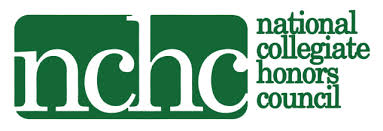Legacy of the videogame
Legacy - HNRS 1120
Instructor(s): Chris Holden
Course Description
Maybe you're an inveterate gamer. Maybe you haven't played a videogame since you were a kid. Regardless, besides maybe a programming class or two, videogames are usually the sort of thing that stay outside the classroom. But videogames are a huge part of modern culture, whether one wants to think about them as entertainment, literature, art, or simply tools. Even if one doesn't think playing games amounts to more than a waste of time, it's a pretty big side of life to leave entirely unexamined. This course hopes to correct that, to give you a chance to investigate the legacy of the videogame. You'll play games, especially ones you might not come across otherwise. You'll join conversations where videogames figure large: what particular games mean, how they work, elements of gaming culture, things about life we can learn from videogames, and where they might be headed. We'll read diversely in our quest to analyze what videogames are all about: from game design to psychology to economics. And you'll get a chance to build your own ideas too. Class discussions will give us a chance to surface and work through important topics, and a research paper (or some equivalent in another medium) will give you a chance to put the pieces together from multiple sources to have something meaningful to say about some element of the vast legacy of videogames.Texts
What exactly we read and play will depend somewhat on who is in the class and what’s going on. But you can expect we will draw from the following sources and others of a similar nature:
- Games, Design, and Play(GD&P) by Macklin and Sharp.
- Extra Credits on YouTube
- The Well-played Game by Bernie deKoven
- A Theory of Fun by Ralph Koster
- The what and why of goal pursuits by Edward Deci and Richard Ryan
Requirements
- Exuberant participation - this small class will be created through the enthusiasm of its members. Preparation, engagement, thoughtfulness and creativity will be necessary every day
- Play a few videogames - you don’t need experience, or much money, but you’ll need to be ready and able to dig in to games as homework. This shouldn’t be hard, but can feel so when there’s a calc. test coming.
- Read a few books and articles
- Do some research into themes we identify
- Write roughly weekly responses - these range from play journals, to analytical briefs
- Lead class discussions twice - likely in pairs
- Write a research paper on a theme you identify, say 5–10 pages - I’m open to other media and formats, but we can always start with nice, cheap words



Social Media
For news, information, prizes and more fun stuff follow us on our social media!
Honors College Resources